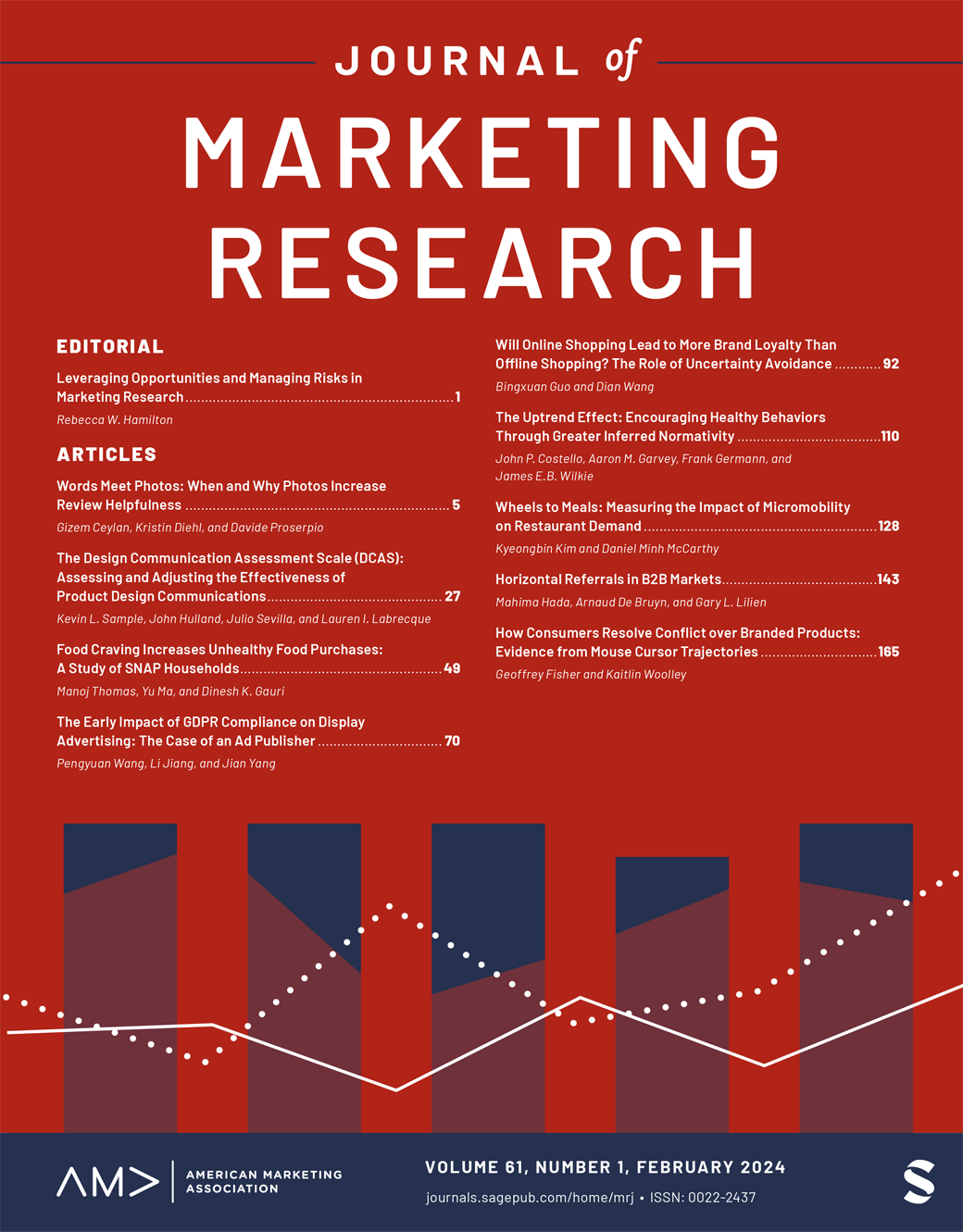EXPRESS: Save More Today or Tomorrow: The Role of Urgency in Pre-commitment Design
IF 5
1区 管理学
Q1 BUSINESS
引用次数: 1
Abstract
To encourage farsighted behaviors, past research suggests that marketers may be wise to invite consumers to pre-commit to adopt them “later”. However, the authors propose that people will draw different inferences from different types of pre-commitment offers, and that these inferences can help explain when pre-commitment is effective at increasing adoption of farsighted behaviors and when it is not. Specifically, the authors theorize that simultaneously offering consumers the opportunity to adopt a farsighted behavior now or later (i.e., offering “simultaneous pre-commitment”) may signal that the behavior is not urgently recommended; however, offering consumers the opportunity to adopt that behavior immediately and then, only if they decline, inviting them to adopt it later (i.e., offering “sequential pre-commitment”) may signal just the opposite. In a multi-site field experiment (N=5,196), the authors find that simultaneously giving consumers the chance to increase their savings now or later reduced retirement savings. Two pre-registered lab studies (N=5,080) show that simultaneous pre-commitment leads people to infer that taking action is not urgently recommended, and such inferences predict less adoption of recommended behaviors. Importantly, offering sequential pre-commitment increases inferred urgency, predicting greater adoption. Together, this research advances knowledge about the limits and potential of pre-commitment.EXPRESS:今天或明天节省更多:紧迫性在预承诺设计中的作用
过去的研究表明,为了鼓励有远见的行为,营销人员可能会明智地邀请消费者预先承诺“以后”采用这些行为。然而,作者提出,人们会从不同类型的预承诺提供中得出不同的推论,这些推论可以帮助解释预承诺何时有效,何时无效。具体来说,作者的理论是,同时为消费者提供现在或以后采取有远见的行为的机会(即提供“同时预承诺”)可能表明该行为不是紧急推荐的;然而,为消费者提供立即采取这种行为的机会,然后,只有在他们拒绝的情况下,邀请他们以后采取这种行为(即提供“顺序预承诺”)可能会发出相反的信号。在一项多地点的实地实验(N= 5196)中,作者发现,同时给消费者增加现在或以后储蓄的机会会减少退休储蓄。两项预先注册的实验室研究(N= 5080)表明,同时进行的预先承诺导致人们推断,采取行动并不是紧急建议,而这种推断预示着更少的人采用推荐的行为。重要的是,提供连续的预先承诺增加了推断的紧迫性,预测了更大的采用。总之,这项研究推进了对预承诺的限制和潜力的认识。
本文章由计算机程序翻译,如有差异,请以英文原文为准。
求助全文
约1分钟内获得全文
求助全文
来源期刊

Journal of Marketing Research
BUSINESS-
CiteScore
10.30
自引率
6.60%
发文量
79
期刊介绍:
JMR is written for those academics and practitioners of marketing research who need to be in the forefront of the profession and in possession of the industry"s cutting-edge information. JMR publishes articles representing the entire spectrum of research in marketing. The editorial content is peer-reviewed by an expert panel of leading academics. Articles address the concepts, methods, and applications of marketing research that present new techniques for solving marketing problems; contribute to marketing knowledge based on the use of experimental, descriptive, or analytical techniques; and review and comment on the developments and concepts in related fields that have a bearing on the research industry and its practices.
 求助内容:
求助内容: 应助结果提醒方式:
应助结果提醒方式:


